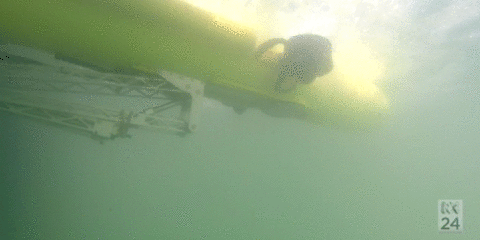Sanpaku
Registered

http://howtoconserve.org/2015/09/25/crown-of-thorns-starfish/
Since 1985, the Great Barrier Reef has lost half of its coral cover, with crown of thorn starfish (COTS) related damage accounting for 42% of the decrease.
Normally, COTS populations are kept in check in two ways. Limited nutrients in the water column keep too many COTS larvae from reaching adulthood, and predation from certain large fish and snails keep adult COTS populations under control.
Overharvesting predatory fish and snails as well as nutrient influxes from sewage and agricultural runoff create ideal conditions for COTS and leave their populations unchecked.
Researchers at the Queensland University of Technology have recently begun testing their very own starfish-killing contraption. Known as COTSbot, the fully automated robot is capable of detecting the prickly predator out in the field, relying on GPS navigation and an enormous database of starfish images taken by scientific divers to positively identify COTS. Once the robot encounters the starfish, it injects a complex serum of chemicals into the organism, euthanizing it over a period of 24 to 48 hours.
Thanks to a recent study from James Cook University, COTSbot’s complex serum of chemicals can be replaced with an ecologically harmless, permit free, easily obtained, and inexpensive alternative. That chemical is dilute acetic acid, also known as vinegar.




